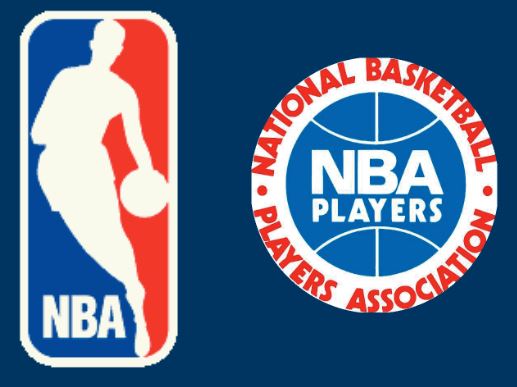The following is a guest contribution from Noah Goodman. Goodman is an associate at Ballard Spahr and he drafts memoranda on federal court decisions and federal agency rulings. He previously oversaw a political campaign for a former Philadelphia City Councilman and was a presenter at the 28th Cooperstown Symposium on Baseball and American Culture at the Baseball Hall of Fame in Cooperstown, New York. For more information on Noah please click here.
The NBA’s labor negotiations are going well. From the owners’ perspective, revenue and league popularity are at an all-time high. For the players, the increase in basketball-related income has resulted in higher salaries—a trend that is likely to continue for the foreseeable future. With the economic landscape bright and labor negotiations going smoothly, both sides should consider amending current restrictions on re-signing players to contract extensions.
Pursuant to Section 7(a)(1) of Article VII of the NBA’s collective bargaining agreement, a player contract may not be extended before: “the third anniversary of the signing of the [c]ontract.” This provision serves as an economic restraint on players and precludes management from utilizing effective methods to reallocate their salary cap by paying players below market value.
By way of comparison, in MLB, teams are allowed to resign players to contract extensions at any point in time. Within the last decade, teams have become aware that players reach free agency too late in their careers. The average age that a player reaches the majors is between 23 and 24 and the average age that a player reaches free agency is between 29 and 30. Teams are cognizant that free agents are past their prime and more likely to suffer injuries. As a result, the new market efficiency is to sign younger players under team control to long-term extensions.
From the players’ perspective, extensions provide guaranteed compensation, which the player may never have earned otherwise. For teams, however, extending players under contract enables them to pay below market value since they are the only bidder for the player’s service. There is one significant downside for players that sign long-term extensions in MLB: it likely precludes them from ever reaching the open-market within the prime of their career.
The NBA would not have this problem if it amended Section 7(a)(1) of Article VII in the next CBA. The benefits of extending NBA players would mimic those enjoyed by MLB. Since basketball players enter the NBA at a much younger age, signing extensions would still enable them to reach free agency during the peak of their careers. Amending Section 7(a)(1) of Article VII would be particularly advantageous to second-round draft picks and undrafted free-agents who have little negotiating leverage upon entering the league.
For example, the 76ers drafted Jerami Grant as a 20-year old in 2014. Grant signed a team-friendly 4-year contract, in which his average annual salary dips below $1 million. In his two years in the league, Grant has proved to be a serviceable NBA player. Although he has limitations as a shooter, Grant has found a niche as a versatile defender with long-term potential. As it currently stands, Grant, based in part on the recent spike in salary cap, is vastly underpaid.
If Section 7(a)(1) of Article VII were amended, the 76ers could extend Grant beyond his current contract. Although it would delay his free agency, Grant would be guaranteed money he may never have received otherwise (i.e., it guarantees an increase in salary if his production declines or he suffers a serious injury). As the only team that could bid to re-sign him, the 76ers would pay Grant below market value for an additional period of time. After his extension concluded, Grant would reach free agency in his mid-twenties. This is important because Grant—and similar players signing extensions—would still be able to get the proverbial “bite of the apple” in free agency.
Amending Section 7(a)(1) of Article VII could greatly impact younger players that prove their worth shortly after entering the NBA. Players that fit this mold and their representatives do not have a seat at the bargaining table and, therefore, Section 7(a)(1) has not been at the forefront of the labor negotiations. However, amending Section 7(a)(1) of Article VII based off of recent trends in MLB could benefit both the players and the owners.
